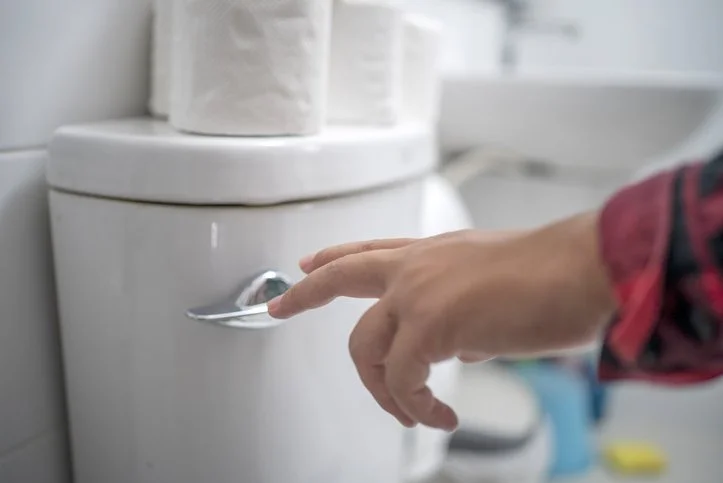When the Body Says “Let It Go”: Diarrhea as a Symptom of Trauma
By Joy Stephenson-Laws, Holistic Coach, J.D., Founder
(Because sometimes, it’s not the tacos—it’s your nervous system.)
Let’s be honest—nobody wants to talk about diarrhea. It’s uncomfortable, unpredictable, and, well… awkward. But here’s the thing: if your stomach often goes from zero to “run!” during stressful moments or emotional upheaval, your body might be telling you something deeper than “lay off the hot sauce.”
What if that sudden urge wasn’t just about what you ate—but about what you’ve been holding in emotionally?
That’s right. Just like acid reflux, diarrhea can be a powerful, if messy, somatic expression of trauma and unresolved stress. Let’s break it down (without breaking for the bathroom, we hope).
1. Fight-or-Flight… and Flush
When your brain senses danger—whether it’s a car crash or an angry text—your nervous system jumps into action. It activates fight, flight, or freeze mode, and in the process, digestion gets… weird.
The sympathetic nervous system says, “Shut it down, we’ve got to survive!”
Your stomach stops processing food.
The colon speeds up motility.
The body basically says, “Let it go—now.”
This is why you may get the runs before a big interview, or after a traumatic reminder. It’s not weakness—it’s a biological survival response.
Scientific support: Stress speeds up colon transit and contributes to diarrhea – PMC
2. Emotions You Couldn’t Digest
Trauma isn’t always loud or dramatic. It can be subtle, chronic, and inhaled over time: emotional neglect, pressure to “keep it together,” or being told not to cry or speak up.
If you were taught to swallow emotions, guess what takes the hit? Your gut.
Diarrhea can be a way the body says:
“I’ve been holding this in for too long.”
“I can’t contain this anymore.”
“This is toxic—I need it out.”
Yes, it’s unpleasant. But it’s also brilliantly protective.
3. IBS-D: When the Gut and Brain Are in a Toxic Relationship
Ever heard of IBS-D? It’s the diarrhea-dominant form of Irritable Bowel Syndrome, and it’s incredibly common in people with trauma histories.
Why? Because your gut and brain are constantly texting each other.
When you’re anxious or stressed:
The gut gets more sensitive.
Inflammation increases.
The gut microbiome (your internal ecosystem) becomes unbalanced.
Result? Bloating, cramping, urgency… and yep, diarrhea.
4. Your Gut Might Be Releasing What You Couldn’t
In somatic therapy circles, diarrhea is often seen as a release mechanism. It shows up when people are finally starting to feel safe, to process trauma, or to let go of old emotional burdens.
Some clients report:
Sudden urgency after a therapy breakthrough
Loose stools after confronting painful truths
Digestive shifts during somatic healing work
It’s the body saying: “Okay, I’m ready to move this out.”
Gross? Maybe. Sacred? Also yes.
5. Trauma Changes the Microbiome (and That Changes Everything)
Your gut is home to trillions of bacteria—a community that helps you digest food, regulate mood, and manage immunity. Trauma and long-term stress disrupt this ecosystem.
What happens next:
Certain bacteria flourish (the unhelpful kind)
Helpful bacteria decline
Inflammation increases
Bowel movements become unpredictable
It’s not in your head. It’s in your gut-brain circuit.
6. So What Can You Do (Besides Live in the Bathroom)?
The good news: you’re not stuck with this.
Here are some holistic tools that help:
a. Breathe Deeply.
Calm your nervous system with belly breathing or coherent breathing (inhale 4 counts, exhale 6 counts). This slows down gut motility and reduces urgency.
b. Eat in Peace.
Literally. Don’t eat while arguing, scrolling stress-inducing news, or rushing. Your gut needs calm to do its job.
c. Get Grounded.
Somatic practices like yoga, TRE (Tension & Trauma Releasing Exercises), or even tapping (EFT) can help release tension from your belly and fascia.
d. Repair the Gut.
Consider gut-supportive tools like:
Fermented foods or probiotics
Soluble fiber (like chia or flax)
Bone broth or soothing teas (peppermint, chamomile)
e. Speak Your Truth.
Diarrhea can sometimes show up in people who are suppressing anger, grief, or fear. Talking, writing, or creatively expressing emotions can shift the pattern.=
7. Final Flush: Your Gut Isn’t Broken, It’s Brave
If diarrhea keeps showing up when life gets hard, it’s not random—it’s intelligent. Your gut is trying to protect you, to process what your conscious mind couldn’t, to release what no longer serves you.
So instead of just asking, “What did I eat?”
Maybe also ask: “What have I been holding inside?”
Because healing isn’t just about stopping the urgency—it’s about finally letting go.





